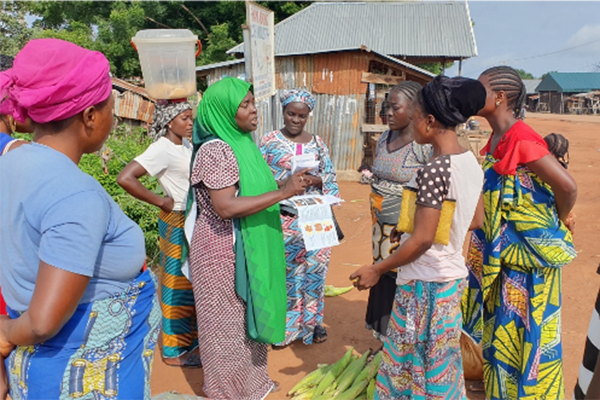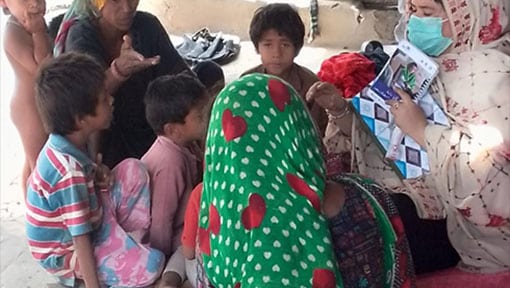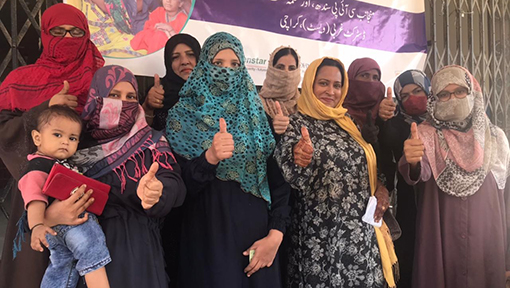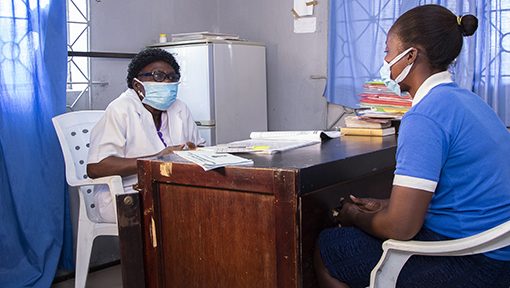Completing Referrals Across Nigeria: TCI Bridges the Gap in 10 States

Social mobilizers in Wukari LGA talking about the benefits of family planning during a neighborhood campaign. Photo credit: Victoria Mohammed
In Nigeria, TCI set out to bridge the gap between just making referrals to family planning services – where referral cards are cards distributed in the community – and successfully completing those referrals – where women actually show up to health facilities for services. Local Government Area (LGA) health educators worked with Social Mobilization Assistants (SMAs) and social mobilizers trained by TCI to improve the process of referring women during social mobilization activities, including neighborhood campaigns, association meetings, community engagements and key life events.
While social mobilization activities are a proven high-impact approach for reaching potential family planning clients, a gap often exists between the number of people referred and the number of people completing the referrals. To find out what kept referrals from being completed in the 10 states where it works in Nigeria, TCI conducted a completed referral rate analysis for each social mobilization activity. Understanding which activities yielded a higher rate of completed referrals was key in providing states with evidence-based feedback to determine what activities to intensify.
TCI also conducted interviews with key stakeholders, including family planning service providers, SMAs and social mobilizers in TCI-supported states and found:
- A lack of/inadequate follow-up on referred clients by mobilizers due to the large number of people referred
- Referral cards issued without first providing adequate information by social mobilizers
- User fees for family planning services
- Non-retrieval of referral cards from clients by service providers at facilities
A number of steps were taken to address these issues although some TCI-supported states made a decision to refer larger numbers of people with limited follow-up over referring a more reasonable number of people who could effectively be followed up with by social mobilizers. During meetings with social mobilizers, emphasis was placed on the need for adequate information to be provided to clients and on the need to obtain the potential client’s commitment to go to the health facility, before issuing referral cards.
Advocacy core groups organized by TCI were encouraged to take the issue of user fees up with the state governments while the SMAs addressed the retrieval issue by visiting health facilities to communicate the need to retrieve referral cards from clients after providing services.
These steps taken to bridge the gap between referrals and completed referrals in the 10 TCI-supported states resulted in a 12% increase in completed referral rates in just one month (from September 2019 to October 2019). The absolute number of completed referrals in October 2019 was the highest since July 2019. Furthermore, in eight TCI-supported states – Abia, Bauchi, Kano, Niger, Ogun, Plateau, Rivers and Taraba – the increase in completed referrals ranged between 2% to 53% in October (for an average increase of 19%) over September’s completed referrals.






